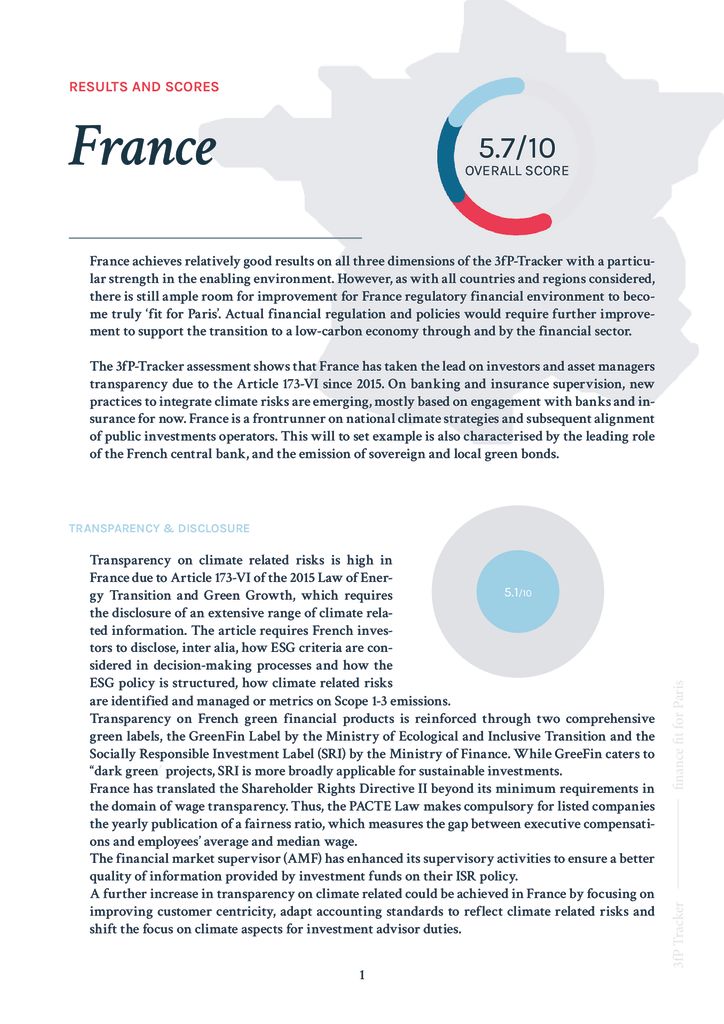Finance fit for Paris (3fP) – Results and scores for France
The global community needs to transform the world economy to become low-carbon and climate resilient. This is the commitment made by the international community in the Paris Climate Agreement. However, humanity needs to find a way to finance this goal. The European Commission estimates that a funding gap of at least EUR 180bn p.a. exist in the EU to achieve its 2030 climate targets.
Green finance is emerging to close this funding gap. The European Union as well as its member states are changing financial market regulation, developing methodologies and restructuring the financial system in this process. This paper highlights key regulatory developments in Europe and provides ideas for further development of climate change aligned financial market regulation and is based on the assessment of the finance fit for Paris Tracker (3fP-Tracker).
The 3fP-Tracker assessment was conducted by the Frankfurt school, I4CE and its partners for EU-level regulation, France, The Netherlands, Italy, Germany and Spain.
Two papers summarize this evaluation and can be downloaded below: a synthesis paper on financial regulation in Europe, which highlights the main regulatory developments and proposes ideas for the future; and a synthesis paper on the evaluation results for France.
Results and scores for France:
France was amongst the first to integrate climate consideration in its financial market regulation. With Article 173 of the French Energy Transition Law, France set a new global benchmark in 2015 and developed public green labels. Public bodies have taken up climate considerations as well, e.g. Banque de France has published the climate exposure of its own portfolios, sovereign Green bonds have been issued and the government provides a clear transition pathway within a Strategic plan. Highlights of the current update of country assessment include
- The financial market supervisor (AMF) has enhanced its supervisory activities to ensure a better quality of information provided by investment funds on their ISR policy. Banque de France and ACPR are actively engaged in the NGFS. A review of the industry climate exposure and practises has been conducted. They are working with external experts and the financial industry to integrate climate risks in future stress tests as well in governance.
- In July 2019, the Ministry of Finance has put in place a framework to track the commitments taken by French financial actors in the past few years, in particular regarding divestment of fossil activities. Subsequently the AMF and the ACPR launched a Climate and Sustainable Finance Commission each, with professionals and independent experts to track commitments.
- In France, all development banks and public agencies provide climate change related finance. A “one stop shop” platform called France Transition Ecologique was launched in May 2019, to create an overview of all green financial services under one platform and facilitate the access of corporates to those.


